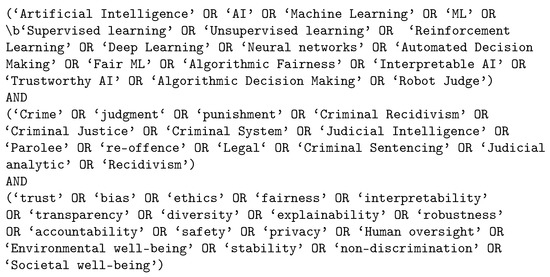

Unraveling Legal Dimensions: AI in Criminal Justice
Introduction to AI in Criminal Justice:
The integration of artificial intelligence (AI) in criminal justice systems presents a paradigm shift. This article delves into the legal aspects of AI within the criminal justice domain, exploring the challenges and opportunities that arise as technology intersects with legal frameworks.
AI’s Role in Law Enforcement:
AI applications in law enforcement range from predictive policing to facial recognition. Legal considerations come to the forefront as questions arise about the ethical use of AI in surveillance, potential biases, and the impact on individuals’ privacy. Striking a balance between effective law enforcement and protecting individual rights becomes crucial.
Bias and Fairness in AI Algorithms:
One of the primary legal challenges is addressing bias in AI algorithms used in criminal justice. Algorithms trained on historical data may perpetuate biases present in the data, leading to disparate outcomes. Legal frameworks must grapple with ensuring fairness, transparency, and accountability in algorithmic decision-making to uphold justice.
Transparency and Explainability Requirements:
The opacity of AI algorithms poses challenges to the legal system. Legal professionals often require transparency and explainability in decision-making processes, especially when AI influences critical aspects such as sentencing. Establishing clear requirements for transparency ensures accountability within the criminal justice context.
Data Privacy Concerns in Criminal Justice AI:
The use of AI in criminal justice involves vast amounts of sensitive data. Legal aspects of data privacy become paramount as criminal justice agencies handle personal information. Legal frameworks must ensure that data usage complies with privacy regulations, safeguarding individuals’ rights while leveraging AI for effective law enforcement.
Legal Challenges in Predictive Policing:
Predictive policing, driven by AI, raises legal challenges related to pre-emptive law enforcement actions based on algorithmic predictions. Balancing the potential benefits of crime prevention with concerns about profiling and civil liberties requires careful legal scrutiny. Establishing guidelines for ethical and lawful use of predictive policing becomes imperative.
Ensuring Due Process in AI-Driven Decision-Making:
AI’s involvement in decision-making processes, such as bail and parole decisions, necessitates a focus on ensuring due process. Legal frameworks must evolve to guarantee that individuals subject to AI-driven decisions have access to fair hearings, the ability to challenge algorithmic outcomes, and protection of their legal rights.
Legal Accountability for AI Actions:
Determining legal accountability for AI actions poses a challenge. If an AI algorithm makes an erroneous decision with serious consequences, assigning responsibility becomes complex. Legal frameworks need to clarify the accountability mechanisms, whether attributing responsibility to developers, users, or the AI system itself.
Ethical Use and Oversight in Criminal Justice AI:
The ethical use of AI in criminal justice requires robust oversight mechanisms. Legal considerations involve establishing ethical guidelines for AI deployment, ensuring that human oversight is maintained, and addressing issues of accountability when ethical boundaries are breached. Legal frameworks play a crucial role in shaping ethical standards.
Education and Training for Legal Professionals:
With the increasing role of AI in criminal justice, legal professionals need education and training on AI technologies. Understanding the technical aspects of AI, its limitations, and its implications for legal proceedings is essential for lawyers, judges, and policymakers to navigate the evolving landscape.
In conclusion, as AI becomes an integral part of criminal justice systems, legal frameworks must adapt to ensure fairness, transparency, and ethical use. For a deeper exploration of the Legal Aspects of AI in Criminal Justice, visit StarMountainResources.com.
The intersection of AI and criminal justice requires a thoughtful and evolving legal framework. Balancing technological advancements with legal considerations ensures that AI enhances the efficiency of criminal justice while upholding the principles of justice, fairness, and individual rights.







